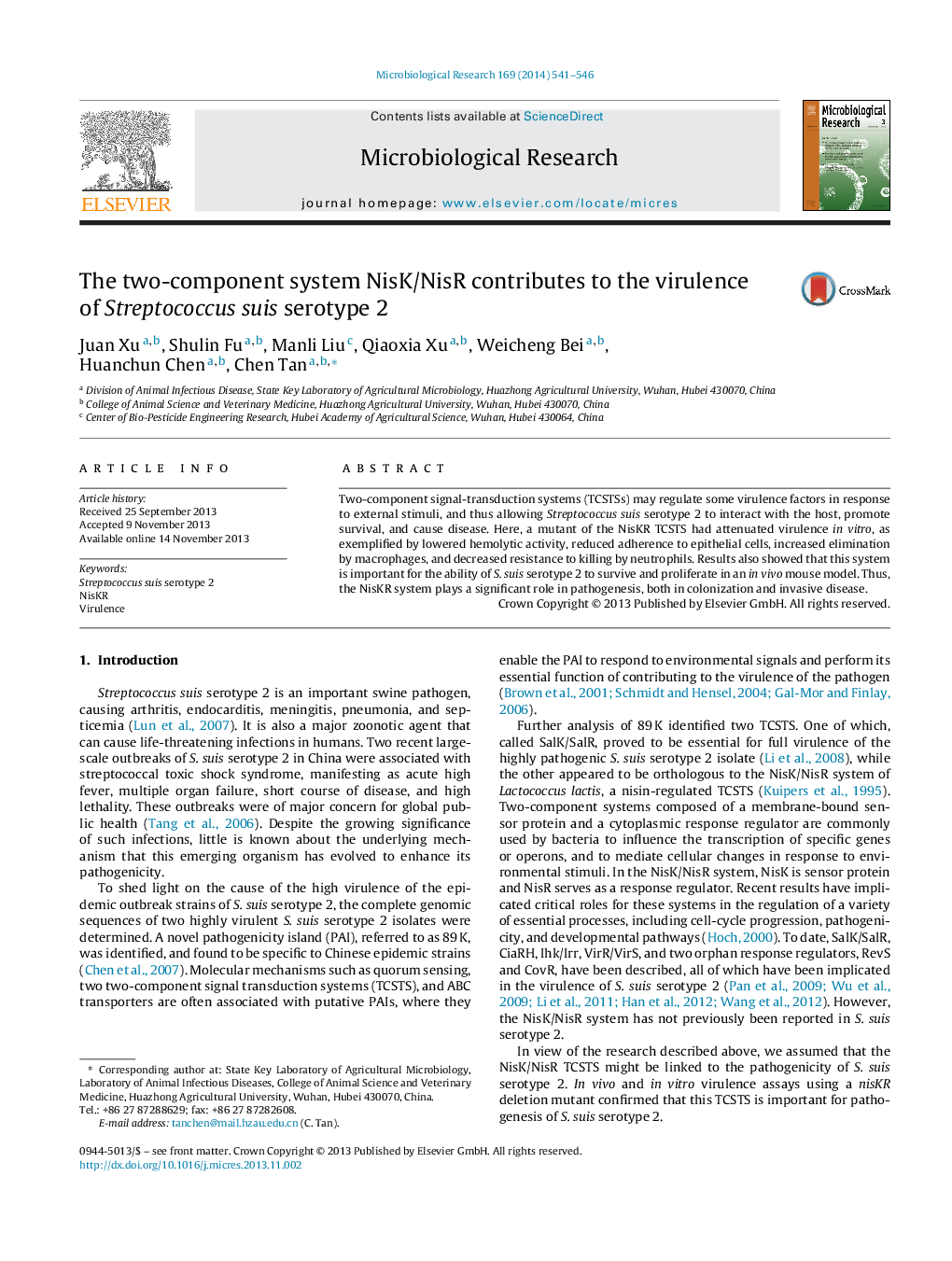| Article ID | Journal | Published Year | Pages | File Type |
|---|---|---|---|---|
| 2092227 | Microbiological Research | 2014 | 6 Pages |
Abstract
Two-component signal-transduction systems (TCSTSs) may regulate some virulence factors in response to external stimuli, and thus allowing Streptococcus suis serotype 2 to interact with the host, promote survival, and cause disease. Here, a mutant of the NisKR TCSTS had attenuated virulence in vitro, as exemplified by lowered hemolytic activity, reduced adherence to epithelial cells, increased elimination by macrophages, and decreased resistance to killing by neutrophils. Results also showed that this system is important for the ability of S. suis serotype 2 to survive and proliferate in an in vivo mouse model. Thus, the NisKR system plays a significant role in pathogenesis, both in colonization and invasive disease.
Related Topics
Life Sciences
Biochemistry, Genetics and Molecular Biology
Biotechnology
Authors
Juan Xu, Shulin Fu, Manli Liu, Qiaoxia Xu, Weicheng Bei, Huanchun Chen, Chen Tan,
